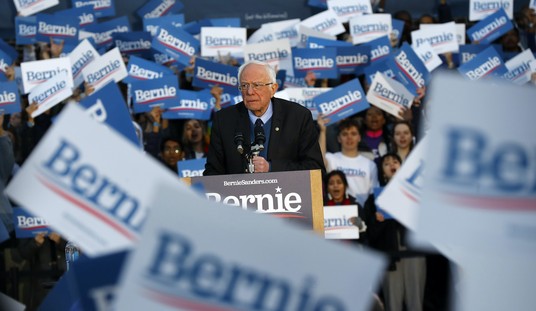Heritage Action and the Club for Growth and Americans for Prosperity and FreedomWorks are all thumbs down? Who said conservatives don’t stand up to Trump anymore?
Here’s the statement from Heritage, which Matt Welch describes as the “in-house think tank for the Trump administration.”
“In many ways, the House Republican proposal released last night not only accepts the flawed progressive premises of Obamacare but expands upon them. Ronald Reagan once said, ‘Government’s view of the economy could be summed up in a few short phrases: If it moves, tax it. If it keeps moving, regulate it. And if it stops moving, subsidize it.’ The AHCA does all three.
“Many Americans seeking health insurance on the individual market will notice no significant difference between the Affordable Care Act (i.e., Obamacare) and the American Health Care Act. That is bad politics and, more importantly, bad policy.
“Rather than accept the flawed premises of Obamacare, congressional Republicans should fully repeal the failed law and begin a genuine effort to deliver on longstanding campaign promises that create a free market health care system that empowers patients and doctors.”
I don’t believe I’ve seen one major Republican player outside the congressional leadership say they support the House GOP bill this morning — with one very important exception, and even he’s sufficiently nervous to have framed the bill as a mere starting point for “negotiation”:
https://twitter.com/realDonaldTrump/status/839086723552411648
The whole point of this rollout, though, is that there’s not going to be negotiation. McConnell made that plain this morning in saying that they’re going to vote ASAP. The bill wouldn’t survive a free-for-all in which the disparate centrist and conservative factions within the GOP are suddenly making demands for amendments. The only way this has a chance of getting passed is via a gut check, with McConnell and Ryan practically daring the critics in their caucuses to vote no and kill the GOP’s first, and maybe best, chance at repeal. That’s why the statements from Heritage et al. are so important: Activist groups are showing wary Republicans in Congress that they’ll have some grassroots support if they defy Trump and the congressional leadership by voting this thing down. It’s the first major rebellion on the right against the administration since Trump was sworn in. And it makes his reaction important. If conservatives end up muscling him into turning against the House plan, it’ll be taken as evidence that they can do it on other policies if they act in concert.
In fact, Trump’s already signaling that revisions, in the form of another “phase” of the process, might be in the offing:
https://twitter.com/realDonaldTrump/status/839108868584124417
You can’t get to phase two unless phase one passes the House and Senate, and right now it sure looks as though the votes aren’t there. Rand Paul has already pronounced the bill “dead on arrival” and it’s hard to disagree given the volume of attacks. How do Trump and Ryan turn the momentum around amid an avalanche of criticism from both the left and right? At a minimum, Paul and Mike Lee sound like firm “no” votes in the Senate, leaving McConnell with no margin for error with the rest of the caucus. (Your move, Ted Cruz!) Health-care wonks like Peter Suderman have described the bill as a purported solution to ObamaCare that doesn’t solve anything but really just tinkers with the O-Care framework already in place to produce different winners and losers. Insurance expert Bob Laszewski, a longtime critic of ObamaCare, elaborates that the bill isn’t so much a policy solution as a political solution: Republicans know that there are no Democratic votes for it so they’ve thrown something together which they hoped might be able to draw enough votes from their own caucuses to get it through Congress. But it won’t work politically (the law overcompensates for how ObamaCare favored the poor at the expense of the middle class by favoring the better off) or as policy (the GOP’s “soft” mandate isn’t punitive enough to avoid adverse selection problems). And it doesn’t make enough Republicans happy to skate through the Senate given the GOP’s very narrow majority there. So what’s left?
I think it was conservative wonk Philip Klein who got to the heart of the problem for right-wing groups like Heritage. By merely fiddling with the controls of ObamaCare, writes Klein, the GOP has conceded that liberalism won the argument on health care:
Ultimately, it doesn’t do much to foster the development of a free market system. Under GOPcare, individuals would not be able to take insurance with them from job to job, because tax credits would not be available to people who have an offer of job-based insurance. They would not be able to purchase whatever plan they want, because the federal government will still be dictating what has to be in insurance policies, making insurance more expensive then it needs to be. If this bill passes, everybody would have to get their insurance either through government, their employer via tax subsidy, or be left to purchase government-designed health policies using federal subsidies…
It still rests on the premise that the federal government should play a significant role in subsidizing and regulating insurance markets in an attempt to ensure broad coverage. Thus, despite the political failures that resulted from Obamacare, the clunky legislation still moved the ball ideologically to the left. The argument isn’t over whether the government should require all insurers to cover people with pre-existing conditions. The argument is about whether the government should pay for it by forcing healthy people to purchase insurance under the threat of a penalty, as Obamacare does, or by threatening anybody who doesn’t maintain continuous coverage with a 30 percent late fee, as the GOP prefers. Liberals, in other words, have won the central philosophical argument, and Republicans are reduced to fighting over the mechanics.
Two great mysteries remain. One: How long will Trump continue to support the bill as the outcry grows on the right and left? The only hope it has of passing is if he goes all-in and demands that congressional Republicans pass it, but even that probably won’t work to scare Paul and Lee back into line in the Senate. (They were both reelected just a few months ago, remember.) All it’ll take is one more defector and Trump will have suffered a humiliating loss. That being so, how much does he really want to invest in selling this thing? And what happens if CBO comes out with a score showing that the bill would reduce coverage while increasing the deficit? That’s a steep political price for the White House to pay for backing a bill that probably can’t pass. Two: If the bill goes down, what replaces it? Conservatives want a clean repeal, but I think they’re kidding themselves. The public doesn’t like that idea; returning to the pre-ObamaCare status quo, even temporarily, may be a harder sell for the GOP than the new bill is. Another alternative is to back the Cassidy/Collins bill, which would let Democratic states keep ObamaCare if they like, but if you think Trump and Ryan are getting grief for their new plan today, imagine the grief they’d get from the right for a bill that explicitly preserves O-Care in some jurisdictions.
Update: Hoo boy. Now Tom Price is calling the bill a “work in progress”? Wasn’t supposed to be.
Tom Price calls health care bill a "work in progress" and "an important step" but won't say it's the "administration's bill"
— Manu Raju (@mkraju) March 7, 2017
Update: Here’s Paul declaring the House bill DOA.








Join the conversation as a VIP Member